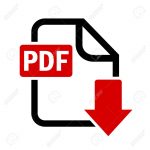 Attached for your information and review is a copy of a January 27, 2014 MHARR communication with the HUD Assistant Secretary for Housing-Federal Housing Commissioner addressing key issues that need to be resolved by the Department.
Attached for your information and review is a copy of a January 27, 2014 MHARR communication with the HUD Assistant Secretary for Housing-Federal Housing Commissioner addressing key issues that need to be resolved by the Department.
As was discussed at the November 2013 MHARR Board of Directors meeting, this communication represents a renewed, intensified and expanded MHARR effort concerning HUD’s full and proper implementation of the Manufactured Housing Improvement Act of 2000. Given the fact that more than a year of coordination with MHI utilizing joint approaches and strategies has not only failed to produce positive results, but has actually allowed the program to regress, the industry has some lost ground to recover. Therefore, with the program being increasingly neglected by HUD, as reflected by the lack of any Manufactured Housing Consensus Committee (MHCC) activity over the past year-and-a-half, the lack of an MHCC Administering Organization (AO), and the lack of a permanent, appointed non-career program administrator, among other things, this communication is intended to jump-start renewed engagement with senior-level officials regarding the federal program.
For your convenience, the following is a brief executive summary of the matters that this communication addresses.
1. Invisibility of the Federal Program: Although the 2000 reform law directs HUD to facilitate the acceptance of manufactured housing “within the Department,” the manufactured housing program remains, at best, invisible, under the authority of the HUD office of “risk management.” MHARR’s communication calls for “fundamental changes in HUD’s approach to manufactured housing” to remove the program from the risk management office and include manufactured housing in all relevant affordable housing programs.
2. Non-Career Program Administrator: There has been no appointed, non-career federal program administrator since 2004. To make matters worse, part of the industry has not only acquiesced this status quo, but has actively solicited applicants for the administrator position to serve on a career basis. This alteration of the law, however, is unacceptable to MHARR, and the Association will immediately challenge any career-based appointment on a policy basis (not based on the person appointed) while continuing to maintain a working relationship with that appointee for the benefit of the industry. Given the fact, moreover, that under the 2014 omnibus appropriations bill, HUD must address this matter or risk losing $50,000 per day, MHARR will closely monitor HUD’s actions and seek accountability for its compliance with the 2000 law on this matter.
3. Subpart I Amendments: With HUD’s final Subpart I rule gradually unfolding, certain changes that could significantly increase costs for manufacturers and consumers are beginning to surface. For example, a provision that would require IPIA reviews of manufacturers’ records on a monthly basis was not included in the proposed Subpart I rule and therefore, was not subjected to public comment. Nor does it appear that HUD has considered the potential cost of this rule (or its justification) as required by the 2000 law. While this should be addressed, HUD should also convene an open and public forum to explain the intricate details of this new and inherently complex regulation to all program stakeholders.
4. HUD Changes to MHCC Proposals at the Final Rule Stage: HUD changes to the Subpart I final rule is only one example of an ongoing problem of HUD unilaterally altering MHCC consensus recommendations at the final rule stage. This not only undermines the consensus process of the MHCC, but allows unidentified special interests to improperly influence final rules with potentially damaging results, such as December 2013 HUD changes to the second set of MHCC-proposed standards to require bath and shower valves that are not currently available.
5. Restoring the MHCC: The impact of HUD’s continuing downgrade of the MHCC and its procedures is becoming increasingly evident, as demonstrated by items 3 and 4, above. With no meetings for a year-and-a-half, no AO, and numerous important issues pending, HUD’s failure to convene the MHCC or assure its continued operation, is an assault on all program stakeholders, particularly the consumers and homeowners who rely on the MHCC to have a voice within the program.
6. Federal Preemption: HUD has yet to implement any aspect of the enhanced federal preemption mandated by the 2000 reform law. With HUD having acknowledged (as consistently stressed by MHARR) that manufactured homes have a fire safety record comparable to site-built homes and that sprinkler mandates would have “a considerable cost impact … for what would appear to be marginal benefits,” MHARR’s letter calls on HUD to preempt state and/or local sprinkler requirements.
7. Ensuring Reasonable Energy Criteria: Relevant law requires the Department of Energy (DOE) to “consult” with HUD regarding energy conservation standards for manufactured homes. MHARR has consistently urged HUD to play an active role, as intended by Congress, to ensure a balance between protection and affordability. In a recent rulemaking under the same law, however, HUD simply deferred to DOE regarding cost impact and affordability. Any similar deference by HUD regarding manufactured housing would be unacceptable. MHARR’s communication thus calls on HUD to fully comply with the law by conducting a complete, thorough and independent examination of any DOE proposed rule in conjunction with the MHCC.
8. Label Fee Increase: With an increase in the HUD label fee imminent, HUD must be held accountable to provide much-needed additional revenue for State Administrative Agencies (SAAs) that are the front-line of consumer protection under federal manufactured housing law for an ever-growing number of new and occupied homes, but are increasingly facing funding cutbacks from state governments confronting serious budget constraints. Therefore, MHARR’s communication calls for additional funding for state SAAs, combined with scaling back unnecessary and wasteful contractor functions.
We encourage you to review the attached communication and share it with your company’s regulatory, technical and legal executives, as MHARR will continue to keep you updated regarding this initiative.





